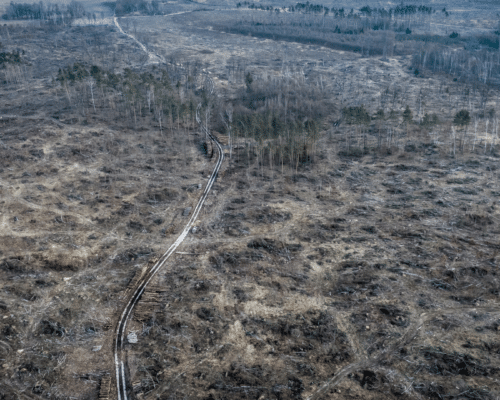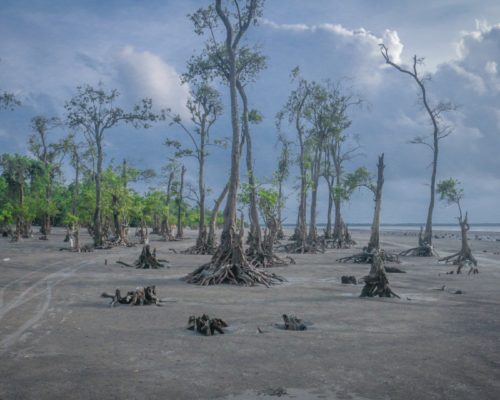Amazon Deforestation: The Cut The Fashion Industry Doesn’t Want You To See
07 December 2021 – by Cinthia Leone Comments (0)
A new survey by Stand.earth shows that over 100 major fashion brands have supply-chain links to Brazilian leather exporters, including JBS, the largest exporter known to engage in Amazon’s deforestation.
The Bad, The Ugly, and The Tacky – Amazon Deforestation
The brands flagged in the study include: Adidas, Nike, Coach, Vans, Prada, Zara, Ralph Lauren, Tommy Hilfiger, New Balance, Teva, UGG, and Fendi, which were found to have multiple connections to Amazon deforestation. Coach, for example, has 10 identified connections to Amazon rainforest deforestation.
A Purpose-made Mess
These findings are notable. It is extremely difficult to prove direct links between fashion brands and environmental misconduct because of the deliberate obscurity of fashion supply chains. So each connection found increases the probability of any individual garment coming from cattle ranching that caused Amazon rainforest deforestation.
Just Do It
Celebrities from the fashion world have embraced the campaign by signing a letter addressed to the brands. They include Candice Swanepoel, Lily Aldridge, Nathalie Kelley
Christy Turlington Burns, Frida Aasen, Leyna Bloom, Carolyn Murphy, Mica Argañaraz, Ebonee Davis e Carry Somers.
The supermodel, actress and British Vogue sustainability editor Amber Valletta points out that it is not acceptable that the fashion industry, one of the most creative, powerful and influential in the world, keeps destroying Amazon to make handbags and shoes. “There’s absolutely no reason why it can’t roll up its sleeves and stop being an accomplice to even another inch of Amazon deforestation”, says Valletta.
Genuine Greenwash
We are hearing long enough about lab-grown leather or vegan alternatives to leather becoming an industry trend, like mushroom leather or pineapple leather. It all sounds very tasteful, but how many of these “win-win” solutions are actually available on the shelves at the time of purchase?
Right now, most fashion companies hide behind the not-so-good traceability of the Leather Working Group (LWG). It provides environmental certification for the leather manufacturing industry, but it traces leather back to slaughterhouses, rather than back to farms. It is like saying that your household water comes from the pipeline.
Meanwhile, the solution that already exists and that many brands are promising to adopt – state-of-the-art leather supply chain traces – is forever at the drop of a hat.
Deforestation Trends
Amazon Rainforest cannot wait for these brands to have the good will to get into the sustainability trend. From August 2020 to July 2021, the largest tropical forest in the world lost 13,235 km² only in Brazil – or 5,100 miles. This is equivalent to 17 times the size of New York City and represents a almost 22% jump in annual deforestation of the Brazilian Amazon rainforest, which was already high.
A Photo-op with Bolsonaro, Anyone?
By buying Brazilian Amazon deforestation leather, these brands indirectly support the political and economic framework that could devour the Amazon to its tipping-point. The Brazilian Congress is controlled by the cattle ranching lobby, permanently working to weaken Brazil’s environmental laws. Whilst Jair Bolsonaro, Brazil’s president, publicly supports activities that drive deforestation and lies about the forest not being on fire. He is so confident of the world’s ignorance on the matter that his government brought false data on deforestation to COP26.
Which Side Are You On?
But let no one be under any illusion: the accelerated destruction of the Amazon rainforest affects everyone in every corner of the world, whether through the CO2 released into the atmosphere, intensifying global warming, or through the major risks that the loss of this amount of biodiversity and natural habitat represents.
The fashion industry has to pick a side. Will it stand with those who protect the forests or with those who destroy them? There is a petition to sign here.
_________________________________________________________________________________________________________________________________________________________________________


